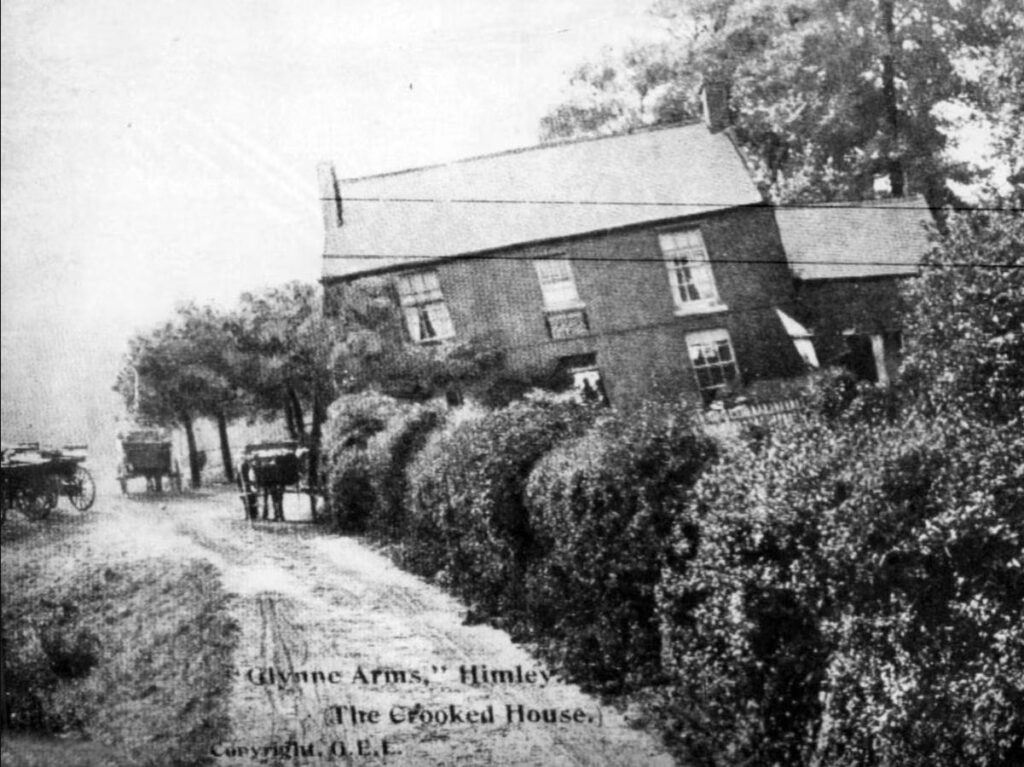
“The owl of Minerva spreads its wings only with the coming of dusk”
– George Wilhelm Friedrich Hegel
Image: The Crooked House. MIDI, CC BY-SA 4.0 https://creativecommons.org/licenses/by-sa/4.0, via Wikimedia Commons
As I sit writing this piece, it’s been exactly a month since the Crooked House was destroyed. For the unaware, the Crooked House was one of the most iconic pubs in my home region, the Black Country. Colloquially known as Britain’s wonkiest pub, the Crooked House was renowned for its slanting, bulging walls and interior optical illusions. Indeed, such was the tilt of the pub that a coin rolled along the mantlepiece, or bar would appear to be rolling uphill. Simply, it was a cultural treasure for locals and a jewel in the crown of England’s pub heritage more widely. However, in early August, the pub was destroyed in circumstances I will generously refer to as controversial. I’ll spare too many of the potentially legally troubling details here (for more, see reading below), but on the night of 5th August, the pub was engulfed and gutted by a huge fire, before being demolished by bulldozers within 48 hours – sans approval from the local authorities. Cue national outrage.
Since the destruction of the pub, I’ve been sitting back, licking my wounds and trying to figure out what to say about this sorry story. In many ways, I feel like I’ve been through several stages of grief in lockstep with the rest of the nation. I’ve seen the outrage on social media, the pearl clutching columns in national broadsheets, and felt the pain of the locals who have lost their treasured sanctuary. I’ve gorged on some fantastic, reflective, thoughtful writing about the disaster – the best of which is linked at the bottom of this article. But what could I, an exiled Black Country boy and (self-proclaimed) pub heritage expert, add to the cacophony of noise surrounding the loss of this once great pub?
It hit me whilst putting in the hours working on my PhD.
Deep into reading an especially fulfilling tome focussed on industrial heritage and identity – I came across a quote from Hegel – great father of German Philosophy – the very same quote which opens this article. Here, Hegel a couple of deep reflections – one philosophical, one existential. On the one hand, Hegel is commenting on the limits of philosophy, outlining how it is only possible to philosophise about a way of life, when that way of life is already passing into history. In a wider sense, Hegel is reflecting on a troubling element of the human condition – the inherent tendency of people to only realise how much something should be valued once it is under existential threat, or maybe even gone entirely.

There are no positives to take away from the disastrous destruction of the Crooked House – apart from the fact this sorry episode can bring discussions about how we value pubs – that most valuable of British institutions – back to the fore.
There is no doubt pubs are under existential threat. In 2000, the country boasted 52,000 pubs. In 2020, that has reduced by 25% to 38,000. Those figures don’t account for the impact of Covid-19 and the subsequent cost of living crisis, which will have scythed that number down further. The plight of British pubs is made even more acute by the fact that – arguably – pubs have never been so important to the communities they serve.
Historic photo of the Crooked House from 1904. George E Lee (G. E. L.), Public domain, via Wikimedia Commons
In an increasingly fragmented, individual society – pubs remain one of the only truly egalitarian locales for groups to commune and socialise. As we become more mobile and less connected to specific places and spaces, pubs can help individuals forge a deep and meaningful connection to establish a sense of home in a specific locale. Most crucially, as public services are decimated in a brutal economic climate – especially in rural and post-industrial urban areas – pubs are increasingly informally subsuming the role of some social services. Since the pandemic, it is pubs which often step up to provide low-cost workspaces, community groups, communal activities and social space for the vulnerable in under-serviced areas.
The point I’m trying to make here – in a roundabout way – is that it seems to me we are at a critical juncture. In terms of pubs, if the owl of Minerva hasn’t taken off, she’s certainly undergoing her final pre-flight checks. It has taken the destruction of one of Britain’s best loved drinking houses to focus the national debate onto how we can protect these most valuable community institutions. It is now up to publicans, pub-lovers and the government to ensure that Hegel’s prophetic words are not realised – and that the great British pub does not disappear into the dusk.
*At time of publication, three arrests have been made in connection to the Crooked House fire. Local mayor Andy Street has pledged to rebuild the Crooked House “brick-by-brick”.
Reading and Media on the Crooked House:
Podcast – The Mystery of the Crooked House Fire, The Guardian – https://www.theguardian.com/news/audio/2023/aug/16/the-mystery-of-the-crooked-house-fire
“Patrons Want Straight Answers in Crooked House Pub’s Demise” by Aaron Boxerman, New York Times – https://www.nytimes.com/2023/08/10/world/europe/crooked-house-pub-fire.html
“The Strange Tale of the Crooked House tells a much bigger story” by Adrian Chiles, The Guardian – https://www.theguardian.com/commentisfree/2023/aug/09/the-strange-tale-of-the-crooked-house-tells-a-much-bigger-story
“The Crooked House is a Classic Example of the UK’s Dysfunction” by Damien McElroy, The National News – https://www.thenationalnews.com/opinion/comment/2023/08/14/the-crooked-house-fire-is-a-classic-example-of-the-uks-dysfunction/
